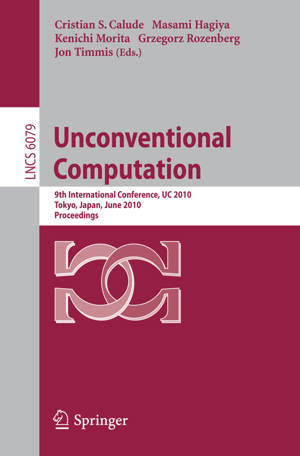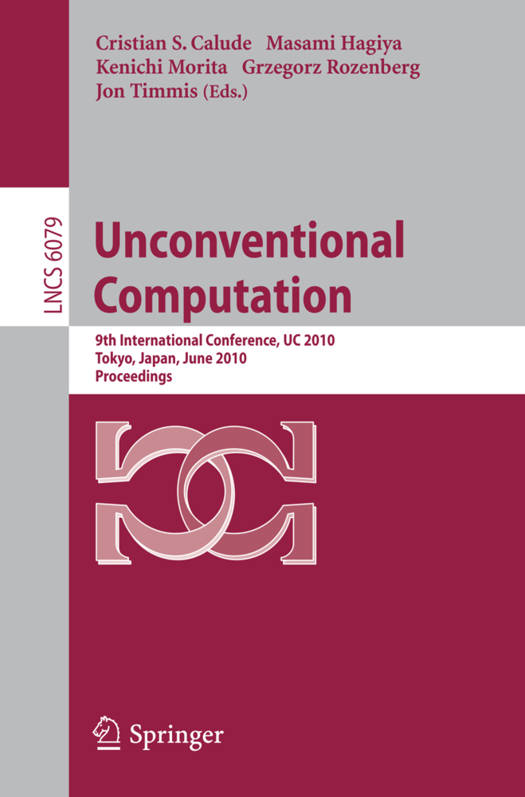
- Afhalen na 1 uur in een winkel met voorraad
- Gratis thuislevering in België vanaf € 30
- Ruim aanbod met 7 miljoen producten
- Afhalen na 1 uur in een winkel met voorraad
- Gratis thuislevering in België vanaf € 30
- Ruim aanbod met 7 miljoen producten
Zoeken
Unconventional Computation
9th International Conference, UC 2010 Tokyo, Japan, June 21-25, 2010, Proceedings
€ 83,95
+ 167 punten
Omschrijving
The 9th International Conference on Unconventional Computation, UC 2010, was organized under the auspices of EATCS and Academia Europaea, by the University of Tokyo (Tokyo, Japan), and the Center for Discrete Mathematics and Theoretical Computer Science (Auckland, New Zealand). It was held in Tokyoduring June 21-25,2010(seehttp: //arn.local.frs.riken.jp/UC10/). The venue was the Sanjo (Hilltop) Conference Hall at Hongo Campus of the University of Tokyo. Hongo Campus was formerly the residence of the Maeda family, one of the richest feudal lords in the Edo period of Japan. The Japanese garden in the residence is partially preserved, including the pond and the hill on which the conference hall is located. Within walking distance from Hongo Campus are Ueno park with many museums, the Akihabara area, which is now the center of Japanesepop culture, and the Korakuenamusement park/baseball stadium. The International Conference on Unconventional Computation (UC) series (seehttp: //www.cs.auckland.ac.nz/CDMTCS/conferences/uc/)isdevotedto all aspects of unconventional computation -- theory as well as experiments and applications. Typical, but not exclusive, topics are: natural computing including quantum, cellular, molecular, membrane, neural, and evolutionary computing, as well as chaos and dynamical system-based computing, and various proposals for computational mechanisms that go beyond the Turing model.
Specificaties
Betrokkenen
- Uitgeverij:
Inhoud
- Aantal bladzijden:
- 195
- Taal:
- Engels
- Reeks:
- Reeksnummer:
- nr. 6079
Eigenschappen
- Productcode (EAN):
- 9783642135224
- Verschijningsdatum:
- 1/06/2010
- Uitvoering:
- Paperback
- Formaat:
- Trade paperback (VS)
- Afmetingen:
- 155 mm x 234 mm
- Gewicht:
- 317 g

Alleen bij Standaard Boekhandel
+ 167 punten op je klantenkaart van Standaard Boekhandel
Beoordelingen
We publiceren alleen reviews die voldoen aan de voorwaarden voor reviews. Bekijk onze voorwaarden voor reviews.







